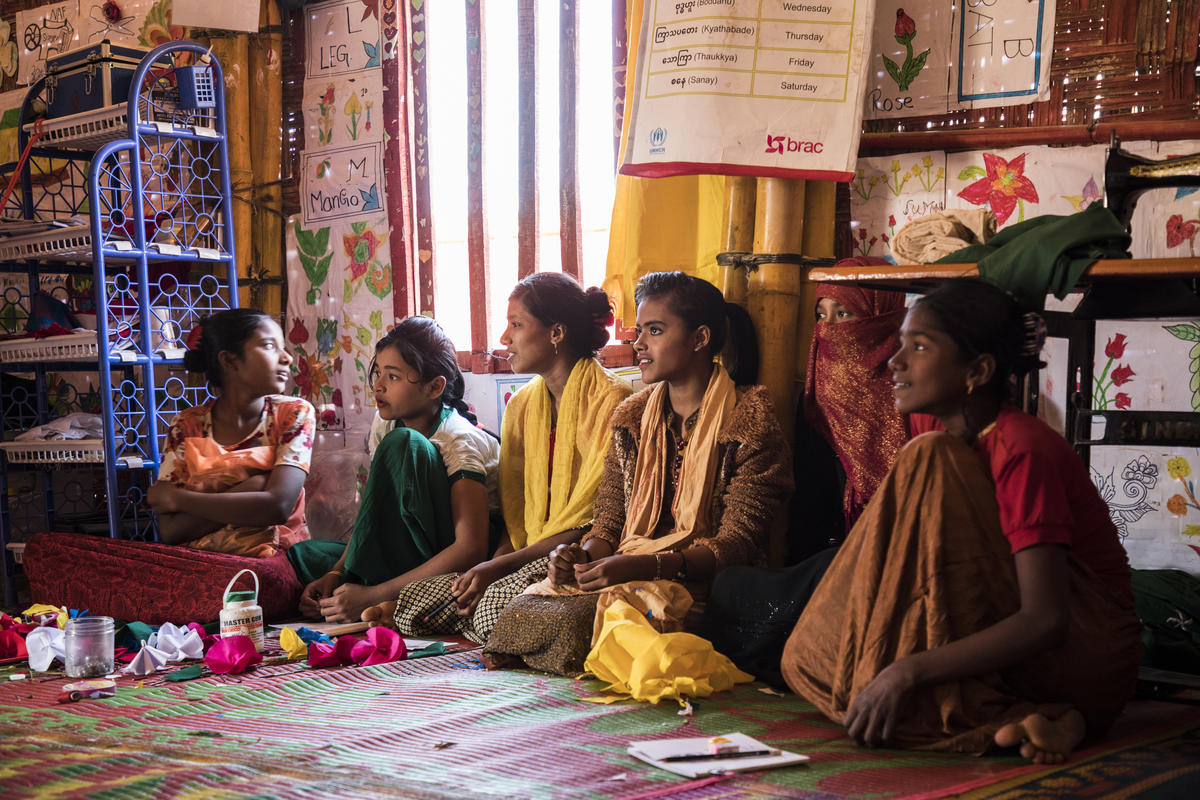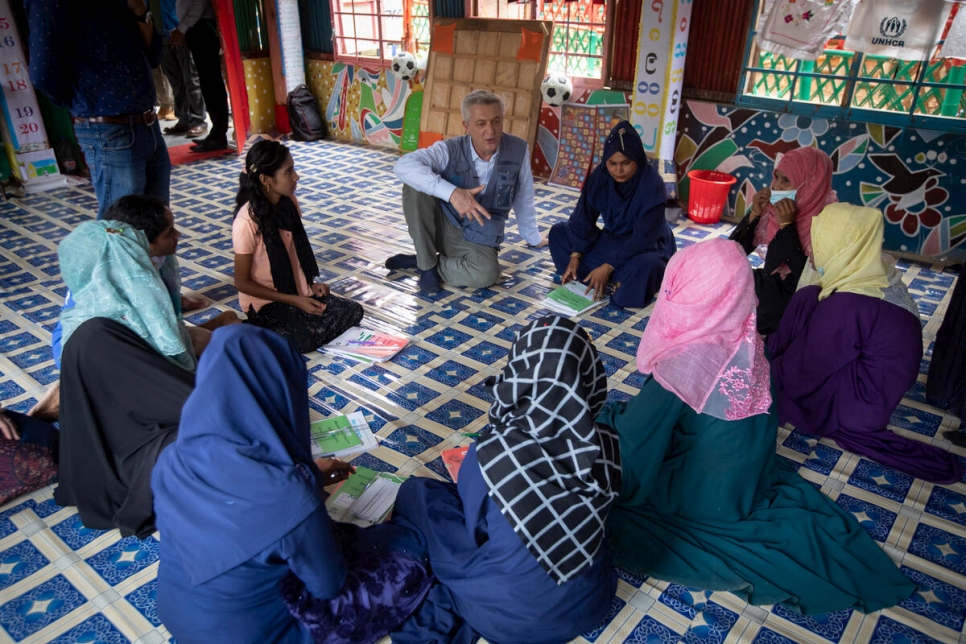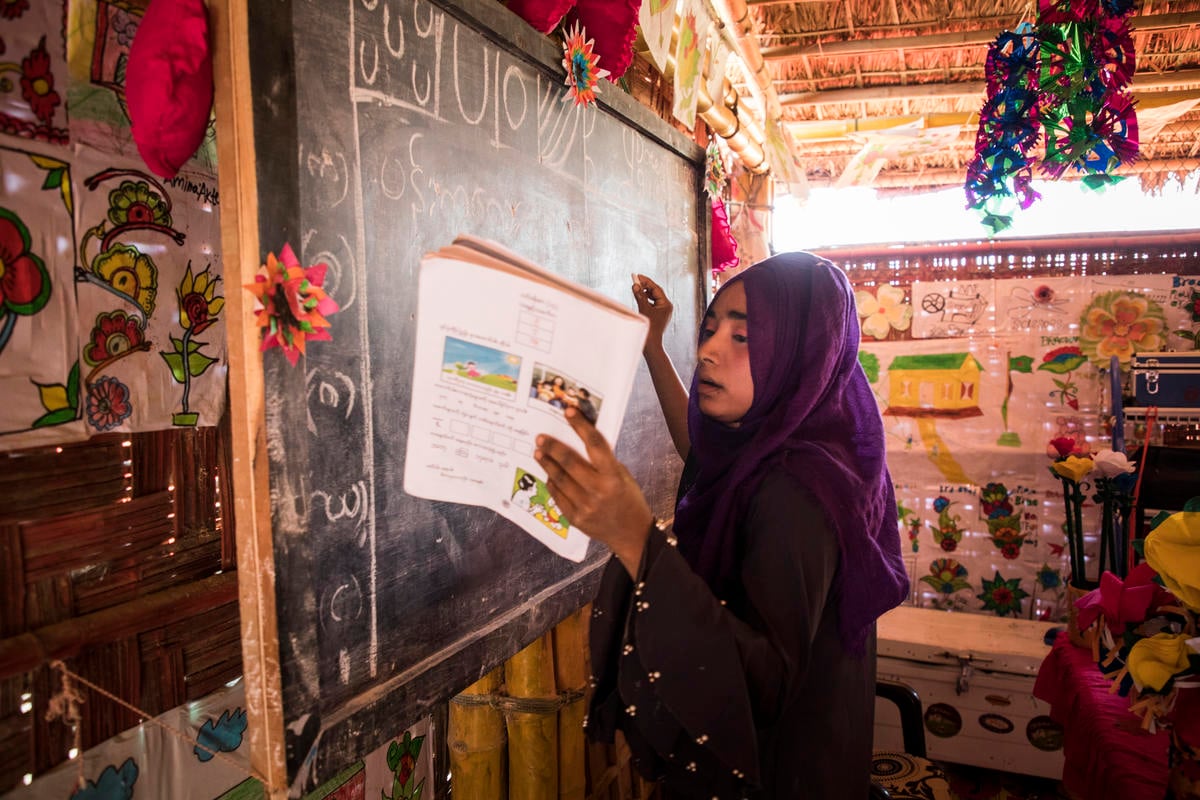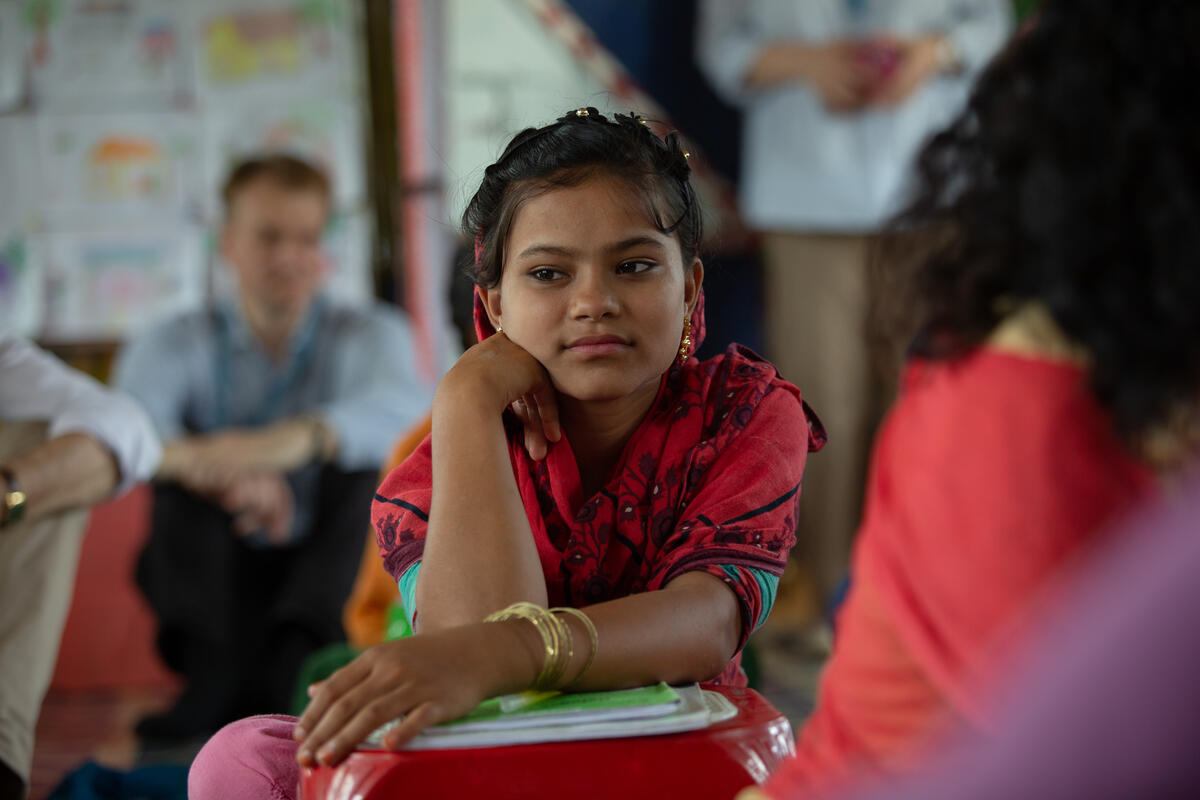Youth groups give young Rohingya refugees skills and a sense of purpose
Around 10 girls aged between 15 and 24 are enthusiastically reciting the English alphabet in a bamboo-framed classroom in Kutupalong camp in Bangladesh’s Cox’s Bazar district. They then practice their drawing skills before a facilitator makes notes on a board about menstrual and reproductive health, and what to do when facing gender-based violence.
The girls belong to one of 70 adolescent clubs that provide informal learning to some 10,000 young Rohingya refugees living in these camps, which are host to nearly one million Rohingya who fled violence and persecution in Myanmar.
More than 50 per cent of the refugees are children or youth, but many have been without access to formal education since arriving in Bangladesh. Younger children can attend learning centres but until recently, the informal curriculum consisted mainly of basic literacy and numeracy and catered only to those aged between 4 and 14.
Following approval by the Bangladesh government, UNHCR, the UN Refugee Agency, UNICEF and partners have introduced a more formal learning programme based on the national curriculum in Myanmar which will eventually address the critical gap in education also for older children in the camps.
"If I could continue my education, I would become a doctor or a teacher."
As of 1 May, 10,000 students had transitioned to the Myanmar curriculum as part of a pilot programme. However, until the new curriculum is fully rolled out, most children over the age of 14 continue to have little access to education opportunities. Adolescent clubs are helping to bridge this gap for young people like Yeasmine who had only attended one year of primary school when she fled Myanmar to Bangladesh with her family in 2012. Now she is 18 years old and has barely had an education.
“If I could continue my education, I would become a doctor or a teacher…. But we don’t have these opportunities," she said.
“These adolescent club activities are very important for girls, because they are getting basic numeracy and literacy skills. They are also getting some knowledge on personal health and hygiene, and early marriage,” said Hanisa Akter, an education officer with UNHCR.
During a five-day visit to Bangladesh this week, UN High Commissioner for Refugees Filippo Grandi met Yeasmine and other girls in her adolescent club and talked to them about their goals for the future.
- See also: UNHCR’s Grandi urges redoubled support for Rohingya refugees, host communities in Bangladesh
He described the roll out of the Myanmar curriculum as a critical step towards improving conditions for Rohingya refugees in Cox’s Bazar. “Education is a right for children anywhere and it’s important if you want to prepare them for eventually going back to their country,” he said.
The High Commissioner also met with members of youth groups who have received training on environmental issues from UNHCR and partner organization, International Union for Conservation of Nature (IUCN). Now, they are championing efforts to regreen the camps and to raise awareness about the impacts of the climate crisis.
“We are witnessing climate change every day,” said Mohammed Rofique, 18, who belongs to one of five such groups. “Last year we saw extreme weather during the monsoon. Most shelters in the lower areas were flooded and we had to rescue a lot of people.”
His group is focused on improving waste management in their camp as one way of reducing flooding. “Before, people used to throw rubbish anywhere,” he said. “The rubbish used to block waterways so when it rained, it flooded and spread waste around the camp.”
As well as making bins out of bamboo and distributing them around the camp, the young volunteers are talking to their community about the importance of preserving their environment and wildlife that wanders into the camps from the nearby forest.
Grandi welcomed the development of projects that are giving young people in the camps skills and a sense of purpose.
“Education and skills development are crucial for refugees to restart their lives once conditions are conducive for their successful return and reintegration in Myanmar,” he said.














